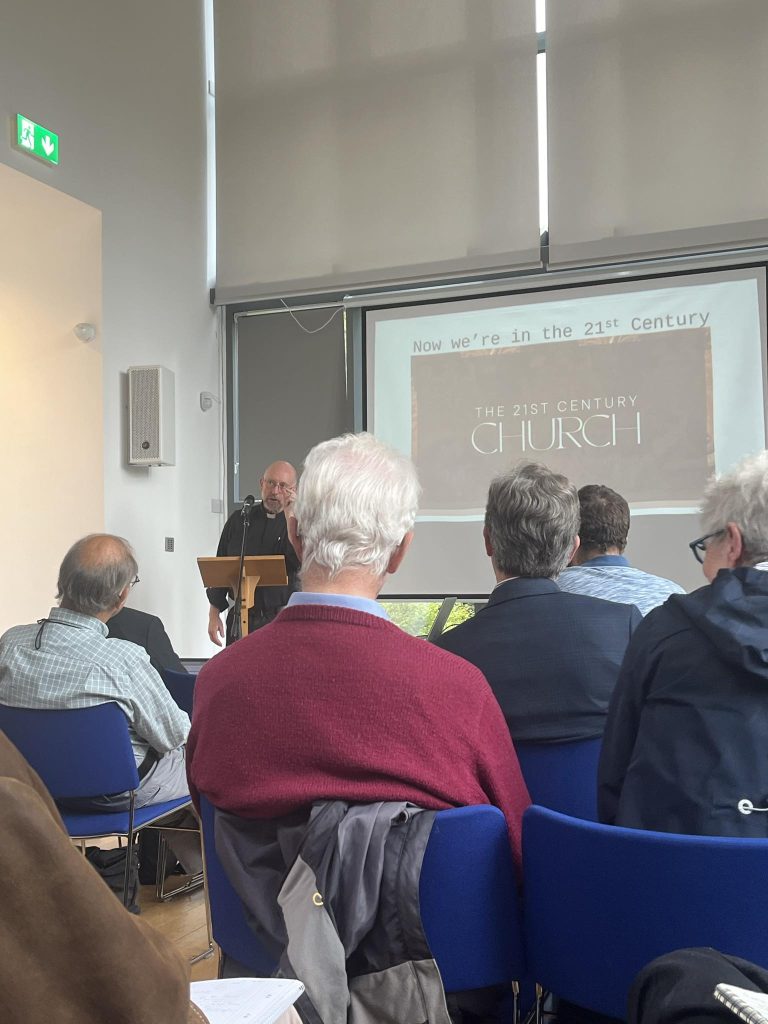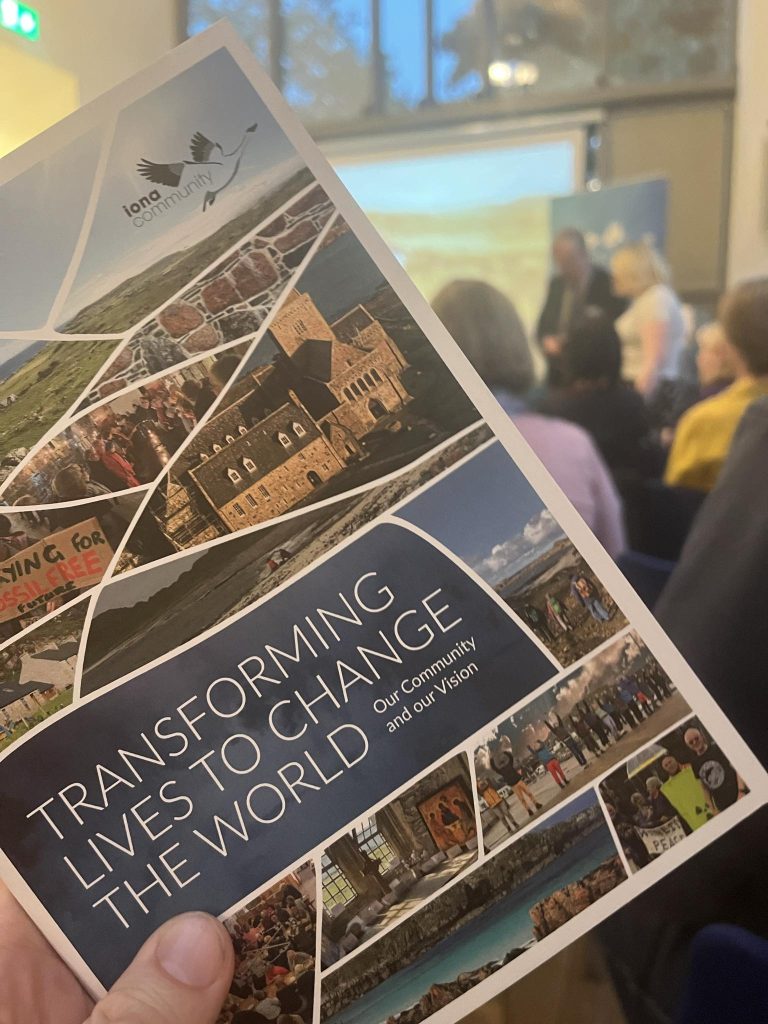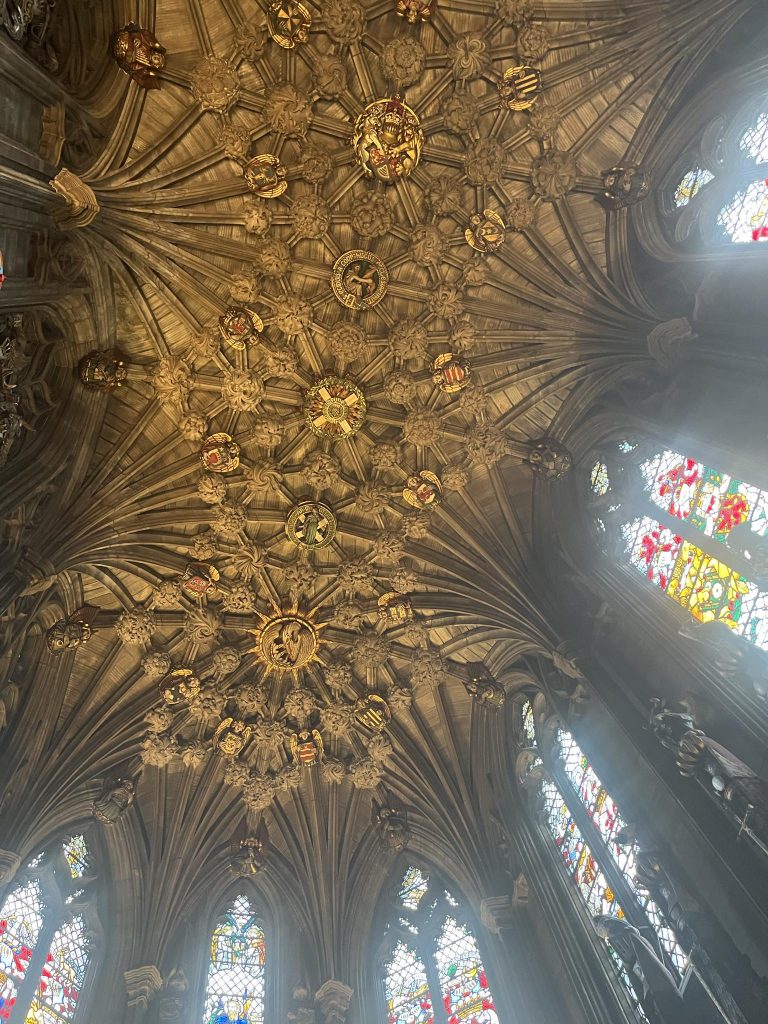I may not have travelled far from my home in Leeds for my ecumenical experience abroad but I don’t believe that this made it any less valuable. In September I attended the Anglican-Lutheran Society biannual conference in the Scottish capital. Its theme was Church in a State.
It was a varied long weekend with a range of talks, activities and experiences on offer. These included a time of prayer with the Iona Community, a tour of St Giles Cathedral (and an introduction to the Church of Scotland), a talk on the history of The Scottish Episcopal Church, and time to explore the city.
The talk that had the most impact on me was by Rev Prof Dr Merete Thomassen of Oslo University. She spoke about what prayers and liturgy reveal about the mindset of contemporary churches, especially state churches in Europe.
For some of the population, those churches seem to exist to believe on behalf of everyone else. Think of how many times a friend or relative, who rarely. if ever, attends a church service, asks you to “say a prayer for me” or “light a candle for my relative”. In many Scandinavian countries, where the population is automatically assumed to belong to the state church or incorporated through baptism, ‘belonging without believing’ is perhaps a more accurate description of the general population’s relationship with the church.
Dr Thomasson has found that the intercessory prayers of the Church of Norway increasingly reflect an internal secularization, as the focus has become less on petitioning God and more on human responsibility and autonomy in the world. By contrast, other churches experience secularization pressing in from society and the result is a strengthening of the traditional approach to worship and understanding God, resisting the external pressure.
In all this, I found the call to examine the role of liturgy for expressing our ideas of human agency and God’s agency most interesting. What we pray and enact in services both reflects and affects our understanding of humanity’s place in the world, its role and relationship to God.



Rt Rev George Samiec from the Evangelical Lutheran Church of England introduced Martin Luther’s theology of the Two Kingdoms and led discussion on what it has to offer Christians today.
Bishop George spoke of how to live as a Christian disciple means living in intersections of heaven and earth, citizens of the Kingdom of God and habitants of this world. We live our lives before God and before the world, but how the Church has navigated the complex moral quandaries this elicits has always been adapting and developing. Luther’s theology of the Two Kingdoms prioritizes the response of the individual to the complexities of living as a citizen of the Kingdom of God in the kingdom (and under the earthly rulers) of this world. The Church must always remember its primary calling and the disciple must consider where their allegiances lie, and how to put their practical outworkings into action. What am I called to be and do in this life? What is my calling, my vocation?
Rt Rev Jana Jeruma-Grinberga (a former CTE President from 2011 to 2014) reflected on ministry in her native Latvia, after many years working for both Lutheran and Anglican churches. She reported that concerns about the threat of an expansionist Russia affect the churches of Eastern Europe and Scandinavia as much as their governments. Questions of loyalty, patriotism and speaking truth to power are on the minds of many in the churches of Eastern Europe. This was particularly challenging.
Another aspect of the conference was being able to experience a range of Anglican and Lutheran worship. At the end of the week, it was particularly moving for me to be involved in assisting at a traditional Lutheran Communion service that used an order of service rarely used today, where the whole service is sung from beginning to end! Even the readings!
The conference weekend was enriching in a multitude of ways. It was a wonderful opportunity to meet so many Christians from a range of backgrounds and to be able to reflect together on what it means to be the church today. I gained insights into how our churches are changing and facing up to contemporary issues. It was interesting to reflect on how our theology, practice, and society impact our daily lives even down to things that we might not usually consider such as prayers of intercession. The conference helped me to think more deeply about ecumenical relationships between churches on a personal level and how our differences and commonalities might enrich one another.
Find out about The Bill Snelson Young Ecumenists Fund and read about the experience of other grant awardees.